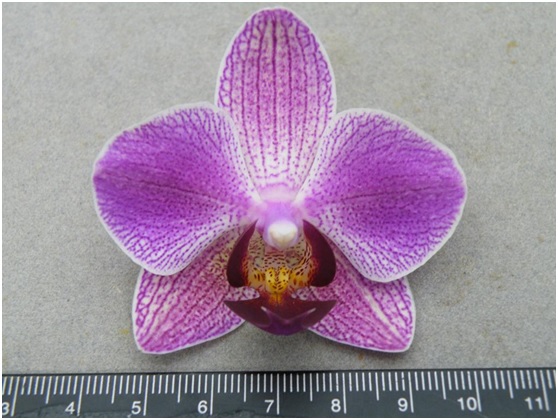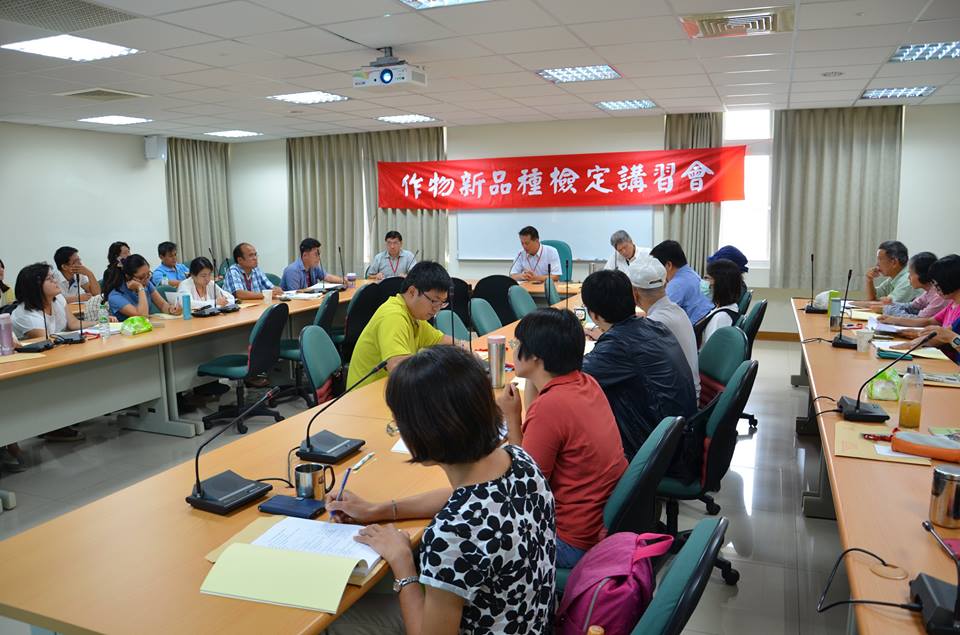 Home > Achievement > Research Project Summary Report > 2017 year > Intensification of Plant New Variety DUS Testing Technology and Research of Genetic Resources Management of the Potential Crop in Taiwan Home > Achievement > Research Project Summary Report > 2017 year > Intensification of Plant New Variety DUS Testing Technology and Research of Genetic Resources Management of the Potential Crop in Taiwan |
Intensification of Plant New Variety DUS Testing Technology and Research of Genetic Resources Management of the Potential Crop in Taiwan
Renewed vegetable germplasm for 78 varieties of cultivating ,investigation, harvesting, packaging and storing. We had renewed cowpea (ASP) 27 lines of mustard, 27 varieties of rape, 24 varieties of Non-head Chinese cabbage, and 24 varieties of cowpea(Asparagus bean) including 5 new collected varieties in this year, we also have collected 5 germplasm of cassia in 2017, including Sunshine tree, Desert Cassia, Pink shower tree, Apple blossom shower tree, Rainbow shower tree. Plants’growth habits and traits were investigated after being growing well. Four growing media were tested for Pink shower tree to investigate growing condition of several stages of seedlings. The performance of Pink shower tree seedlings was better when growing in the media composed of mushroom waste (sawdust) than in soil, peat moss or peat poss-perlitevermiculite(1:1:1) mix. Further investigation will continue to screen for An optimum container seedling producing model for landscaping.Biodiversity resources are abundant in Taiwan. We tried to employ the agriculture techniques for germplasm preservation ,commercially cultivating wild plants, and producing seeds and seedlings to promote ecological conservation. In this study, we first established and preserved about 300 varieties of Taiwan indigenous plants in demonstration field. Second, we studied on cutting Propagation of cat mint.We use root agent IBA2000ppm treatment lateral shoot can grow rapidly. we studied on Propagation of Uraria Crinita(L), Seed soaking can promoted seed germination to 68%. Treatment of plug seedling were growing faster and heavier roots than sowing seedling.The other purpose of this project is to establish the test guidelines and execute DUS tests and modified the test guideline and table of characteristics of dendrobium, oncidium, and venda, and the venda initial characteristics’table has been established and included 49 items. We also collected 80 commercial varieties of phalaenopsis and doritaenopsis for establishing variety database. We have accepted 91 cases of phalaenopsis and doritaenopsis, 3 cases of oncidium, 1 case of caladium and 6 cases of rose to execute DUS tests for protecting the breeder’s rights this year.There are 10 cases of phalaenopsis and doritaenopsis have been executing DUS tests, and 48 phalaenopsis and doritaenopsis, 3 oncidium and 3 roses have been granted PBR. We also have finished a plant variety DUS testing technique training seminar on November in 2017.

▲Fig1. There are 91 cases of phalaenopsis and
doritaenopsis have been executed of DUS
tests. 48 phalaenopsis and doritaenopsis
(including Fangmei 9836) have been granted
PBR in 2017.

▲Fig2. Plant variety DUS testing technique training
seminar has been held on 17th November in 2017,
which enhanced relevant skills of DUS examiners.
